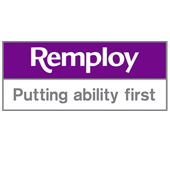 "Remploy now has a really credible project and programme management capability, which is working to the highest professional standards. We now have what we need to meet the new challenges the company faces in its modernisation programme, including the building and development of successful businesses following the restructuring"
"Remploy now has a really credible project and programme management capability, which is working to the highest professional standards. We now have what we need to meet the new challenges the company faces in its modernisation programme, including the building and development of successful businesses following the restructuring"
Remploy needed to modernise its business to stay profitable and compete. This strategy meant that a significant number of factories would need to be closed - something that Remploy had never done before.
The scale and complexity of the changes required meant that using a project portfolio approach would not work. Project disciplines were needed to deliver some specific results, for example the closure, merger and transfer of particular factories. But at the same time these projects needed to be flexible to ensure that benefits were achieved.
Because of the difficult political landscape that Remploy works within, the project sequencing was subject to complex negotiations, with the boundaries changing quite rapidly. Core elements of the scope, such as how many sites would be closed, how many employees would accept each of the different options available to them, and what level of funding would be necessary, often remained ambiguous long after the start of the initiative.
For all these reasons, we worked closely with Remploy to adopt a programme approach. This gave them the ability to manage the overall complexity at programme level, while maintaining absolute clarity about what each individual project was required to do. Careful planning of stakeholder engagement was also crucial in making sure that all the dots were joined.
Remploy were able to effectively use all the input from CITI to put together a team of professional programme and project managers capable of managing their significant strategic change programme.

















